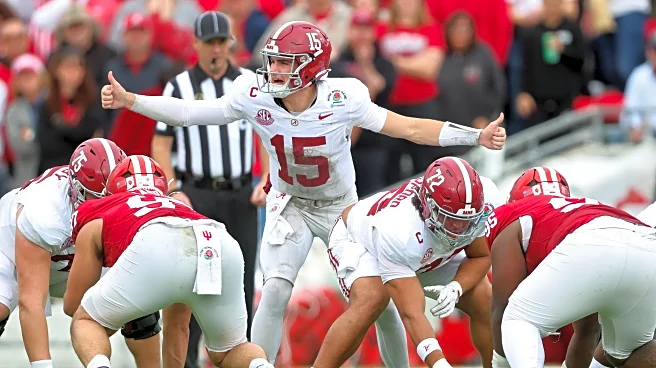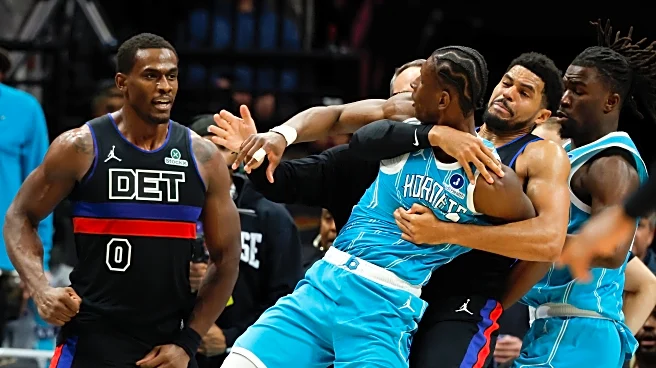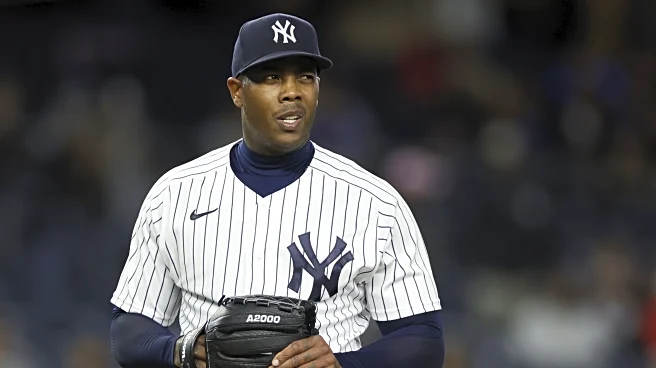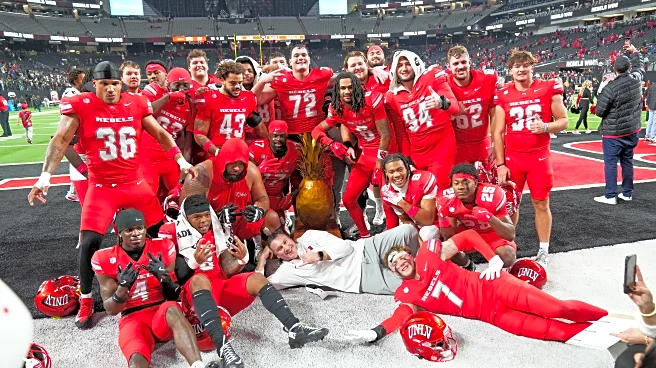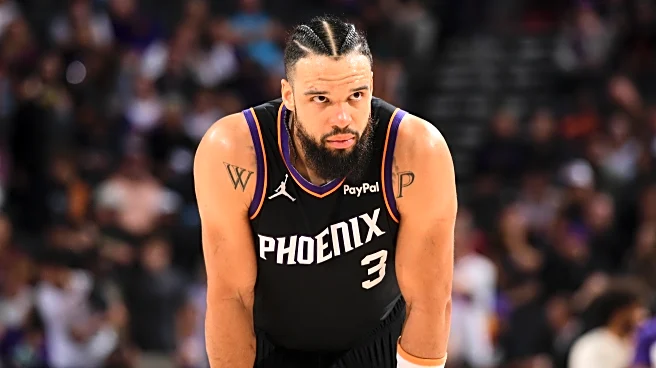What's Happening?
A recent column by Carolyn Hax addresses a complex issue faced by a married individual who identifies as bisexual. The individual, who realized their bisexuality six months into their engagement, is now contemplating asking their spouse for a temporary
open marriage. This consideration arises from a desire to explore relationships with men, a facet of their identity they have not yet experienced. The individual is concerned about the potential impact on their marriage, especially since both partners have only been with each other. The dilemma highlights the tension between personal identity exploration and marital commitments.
Why It's Important?
This situation underscores the broader societal challenges related to sexual identity and marital expectations. It raises important questions about honesty, communication, and the evolving nature of relationships. The potential request for an open marriage could have significant emotional implications for both partners, affecting trust and the future dynamics of their relationship. This case also reflects a growing discourse on how individuals navigate personal identity within the confines of traditional marital structures. The outcome of such discussions can influence societal norms and expectations regarding marriage and personal freedom.
What's Next?
The individual is advised to approach the situation with honesty, prioritizing open communication with their spouse. Seeking individual and couples counseling is recommended to navigate these complex emotions and decisions. The decision to explore an open marriage should be made collaboratively, ensuring both partners are comfortable and consenting. The resolution of this issue could set a precedent for how similar situations are handled in other relationships, potentially influencing societal attitudes towards non-traditional marriage arrangements.
Beyond the Headlines
This scenario highlights the ethical considerations of entering a marriage without fully disclosing one's sexual identity. It also touches on the cultural shift towards more fluid and open relationship models, challenging traditional monogamous norms. The discussion may contribute to a broader acceptance of diverse sexual identities and relationship structures, promoting a more inclusive understanding of personal and marital fulfillment.



